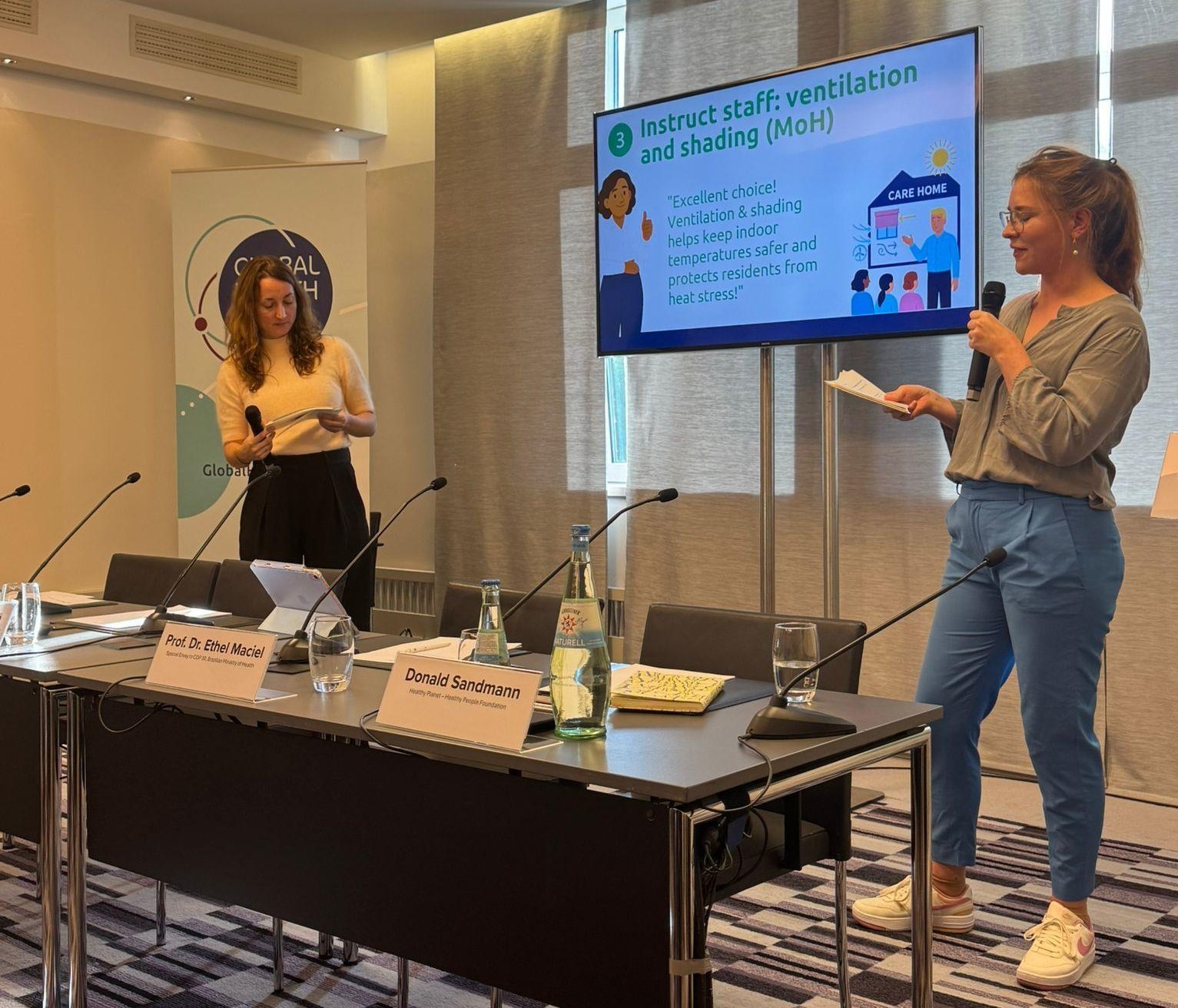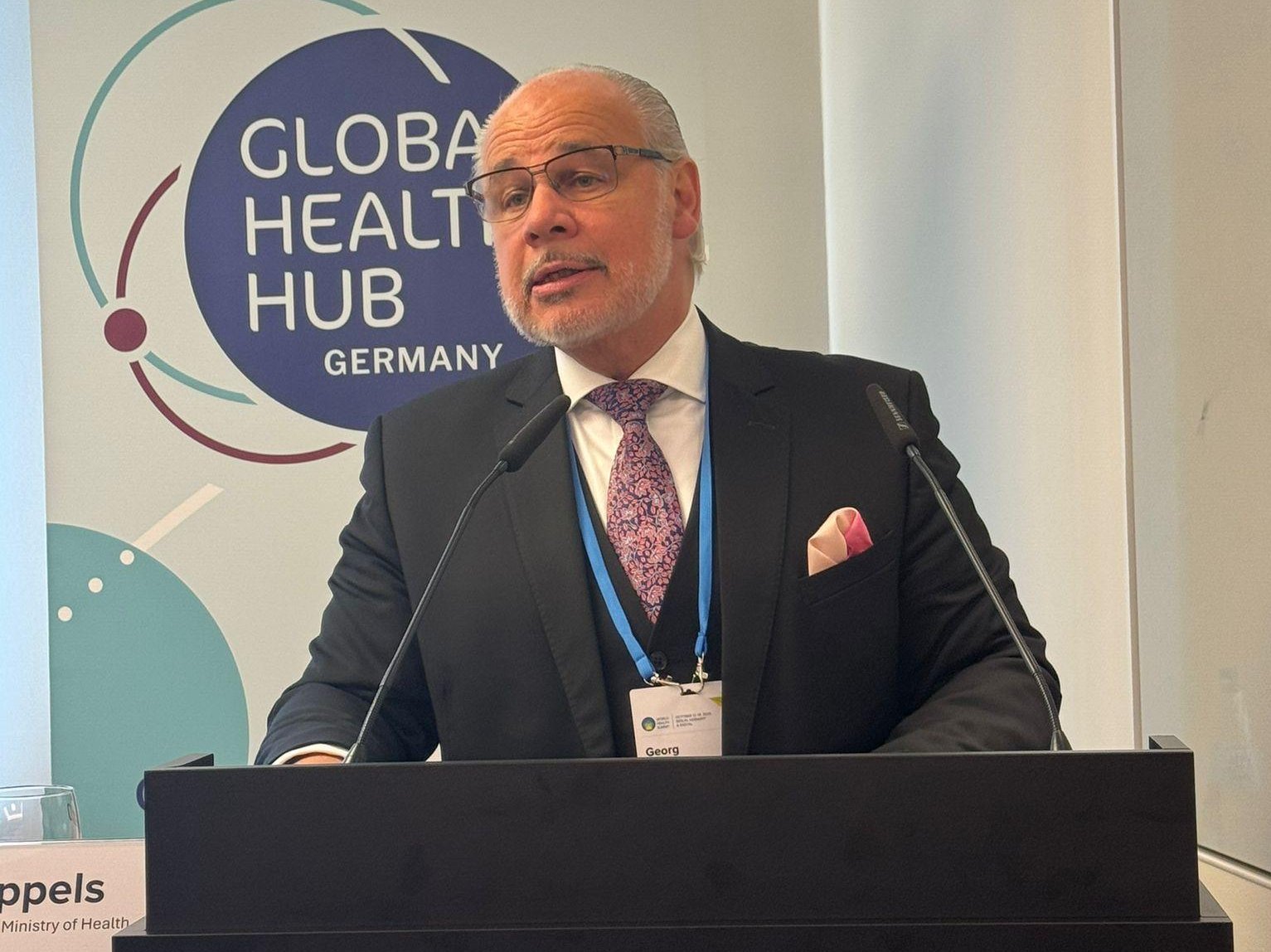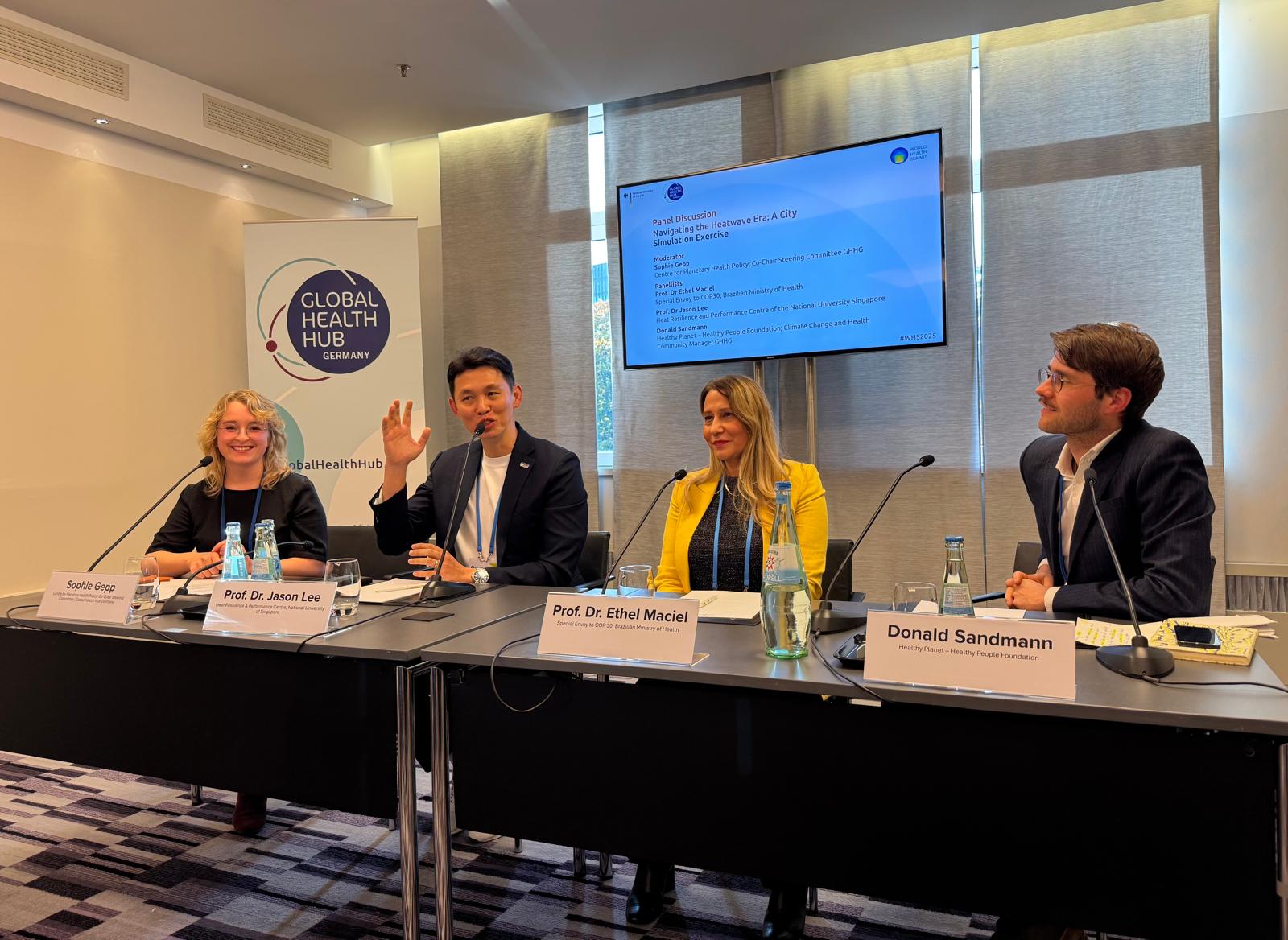Navigating the Heatwave Era: A Simulation on Heat Preparedness at the World Health Summit 2025
![[Translate to English:] [Translate to English:]](/fileadmin/user_upload/WHS_Titelbild_01.png)
How can cities protect lives as heatwaves intensify? At WHS 2025, an interactive simulation and expert panel by the Federal Ministry of Health and the Global Health Hub Germany explored what real heat preparedness means and why every health death is preventable
Extreme heat is no longer a distant threat. It is a lived reality reshaping lives, economies, and health systems worldwide. But what does it take to protect people when the temperature keeps rising? And how can cities prepare for the next wave?
These questions stood at the centre of the World Health Summit 2025 Side Event, “Navigating the Heatwave Era: A City Simulation Exercise,” jointly hosted by the German Federal Ministry of Health (BMG) and the Global Health Hub Germany (GHHG).
Learning by Doing: Inside the Simulation
Rather than a traditional panel or lecture, the session began with an interactive tabletop simulation exercise that placed participants at the centre of a heat crisis. Acting as city mayor, they were challenged to make urgent decisions as temperatures climbed: how to allocate limited funds, protect vulnerable groups, and ensure care homes could cope under mounting pressure.
The exercise made one thing clear: preparedness is not abstract. Every decision carries trade-offs, and every delay costs lives. Participants experienced the same tensions real-world leaders face: how to protect communities when resources are scarce, and time is short.
The “Critical Choices – Heat Edition” simulation exercise was developed by the Global Health Hub Germany, based on the “G7 Grandurbia Simulation Exercise” designed by the Anticipation Hub of the German Red Cross in consultation with the Federal Ministry of Health.
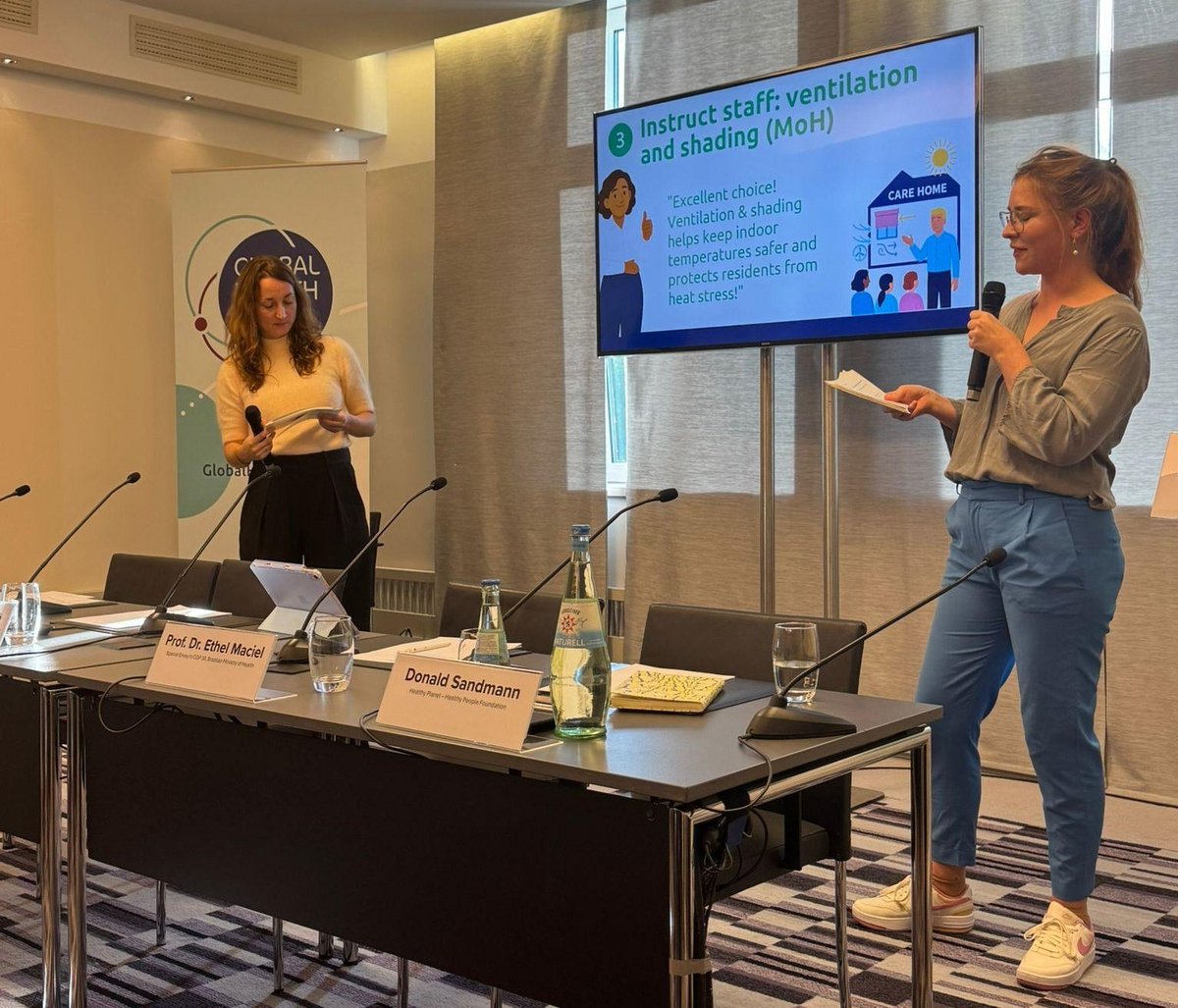
From Simulation to Strategy: A Human Story Behind the Numbers
Following the simulation, Parliamentary State Secretary Dr. Georg Kippels of the Federal Ministry of Health delivered a keynote address that connected the exercise to real-world policy. He reminded participants that behind every statistic is a human story.
He spoke of a 79-year-old woman who collapsed during a heatwave after avoiding drinking water out of fear she would not find a toilet nearby. “Her story shows how everyday fears can, in extreme heat, turn into life-threatening emergencies,” stated Dr. Kippels.
The numbers tell the same story on a continental scale. In Europe, over 61,000 lives were lost in the summer of 2022 due to extreme heat, while nearly 48,000 deaths were recorded in 2023, the second-deadliest summer on record. Yet, researchers estimate that without existing adaptation measures, the toll could have been five times higher.
“The message could not be clearer,” Dr. Kippels emphasised. “Adaptation works and it must be scaled up.”
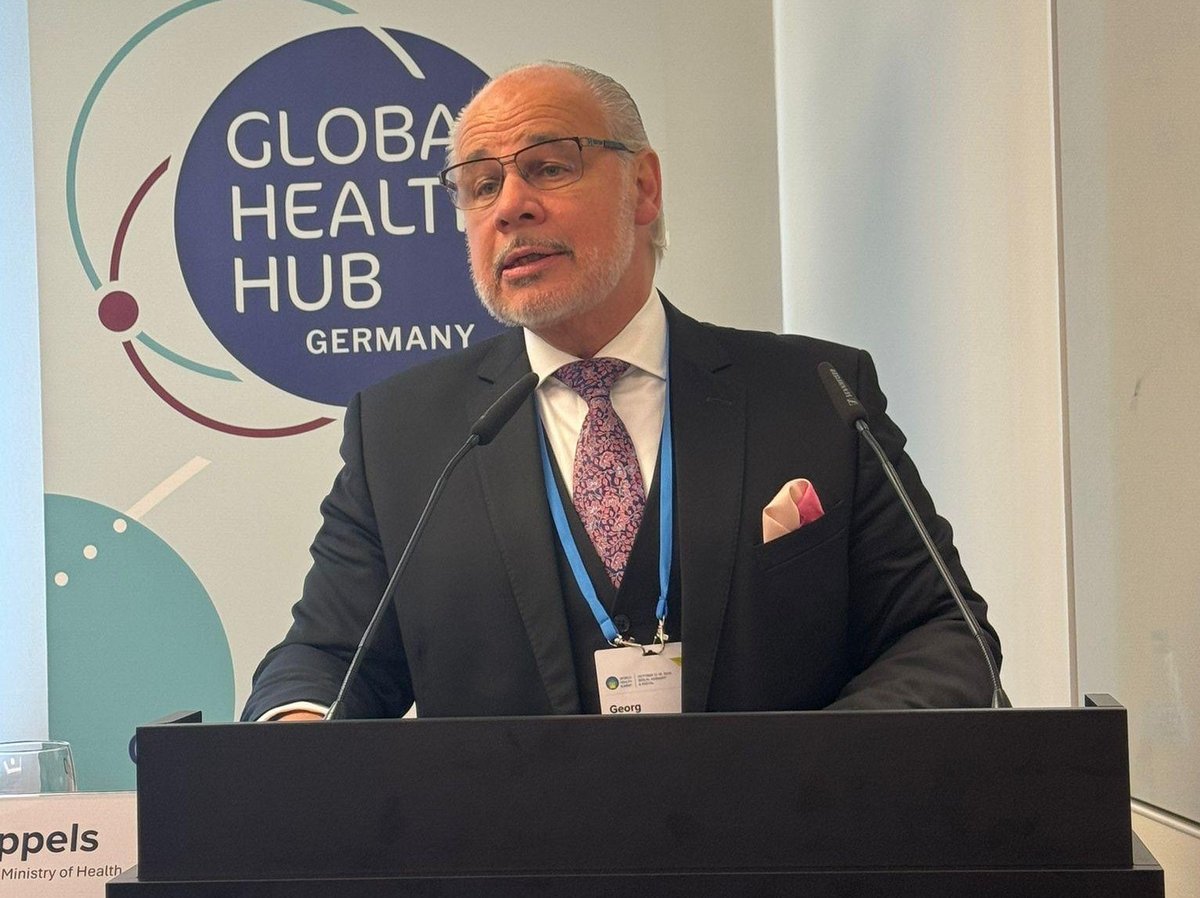
Germany’s Path Toward Heat Preparedness
Dr. Kippels also highlighted Germany’s national commitment to protecting health in the face of rising temperatures. During its 2022 G7 Presidency, Germany placed the link between climate and health firmly on the global agenda. Since then, several milestones have followed:
- The Federal Heat Protection Plan for Health (2023) launched nationwide awareness campaigns, practical guidance for care facilities, and targeted communication for at-risk groups.
- The Heat Protection Roadmap (2024–2025), developed jointly with states, municipalities, health professionals, and civil society, strengthened hospital resilience, improved local coordination, and expanded digital early warning systems.
While Germany’s federal system divides responsibilities across levels of government, Dr. Kippels noted that this has not slowed action. “The Federal Ministry of Health will not wait and see,” he said. “We are acting now, with our partners, to protect lives today and build structural resilience for tomorrow.”
From Policy to People: Insights from Global Voices
The keynote was followed by a panel moderated by Sophie Gepp (Center for Planetary Health Policy and Co-Chair of the Global Health Hub Germany Steering Committee), featuring Prof. Dr. Jason Lee (National University of Singapore), Prof. Dr. Ethel Maciel (Brazilian Ministry of Health), and Donald Sandmann (Healthy Planet – Healthy People Foundation and Co-Manager, GHHG Climate Change and Health Community).
Bringing perspectives from academia, government, and civil society, the discussion converged on one conviction: every single heat death is preventable.
Prof. Jason Lee emphasized that even one heat death signals a system failure. Heat risk, he noted, is shaped not only by temperature but also by culture, work conditions, and social norms. For many vulnerable workers in Asia, exposure to extreme heat is a daily necessity, highlighting how heat deepens existing inequalities and demands systemic solutions.
From Brazil, Prof. Ethel Maciel highlighted that equity and justice must be at the heart of climate adaptation. She outlined Brazil’s focus on surveillance, capacity building, and innovation, while urging greater accountability from high-emission nations. She added that in regions where heat feels “normal,” awareness must be raised through messages that connect to people’s daily lives, not just through data.
Representing civil society, Donald Sandmann underscored the role of trust, collaboration, and shared purpose. While Germany has advanced with its National Heat Action Day and municipal heat plans, he called for a stronger national framework and for embedding heat resilience into health professional training.
Together, the panellists agreed that preventing heat-related deaths requires not only data and infrastructure but solidarity, equity, and coordination across all sectors of society.
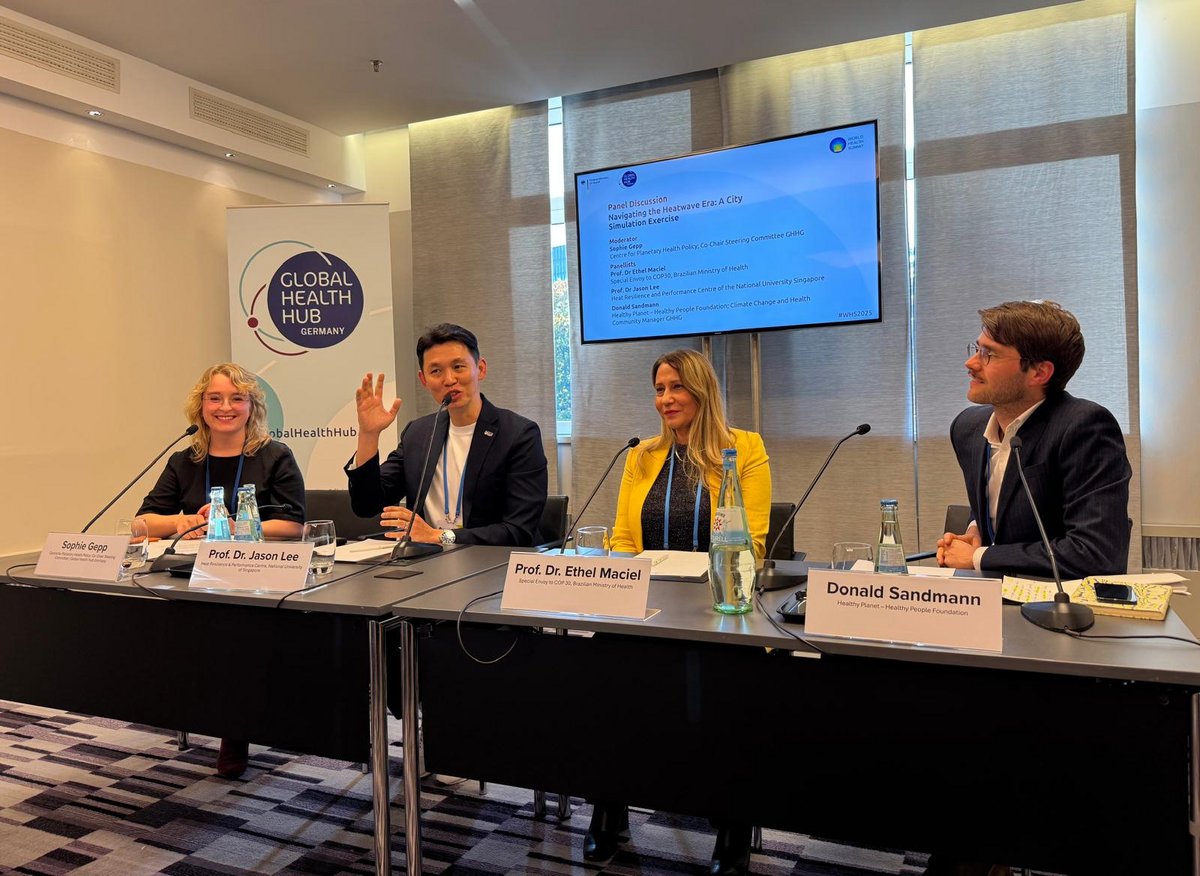
Lessons for a Hotter Future: A Shared Responsibility
Throughout the event, one message stood out: heat preparedness is a collective responsibility. Governments must set clear policies. Cities must create shade and green spaces. Employers must safeguard outdoor workers. Social services must reach the isolated, and health systems must withstand rising temperatures.
By combining an interactive simulation with global perspectives, the side event showed how learning through experience can deepen understanding and strengthen collaboration among policymakers, researchers, and practitioners.
In a warming world, preparedness is not optional – it is lifesaving. The WHS side event “Navigating the Heatwave Era” made that message unmistakable: every life saved from extreme heat is a victory for health, dignity, and resilience.
For the Global Health Hub Germany, the event reflected its broader mission: to connect communities, share evidence, and foster collaboration across disciplines.
🔍 Take a look at the simulation exercise here: Critical Choices Heat Edition.pdf
If you would like to use the simulation exercise yourself, please contact Katrin Würfel via Katrin.wuerfel@globalhealthhub.de or info@globalhealthhub.de
